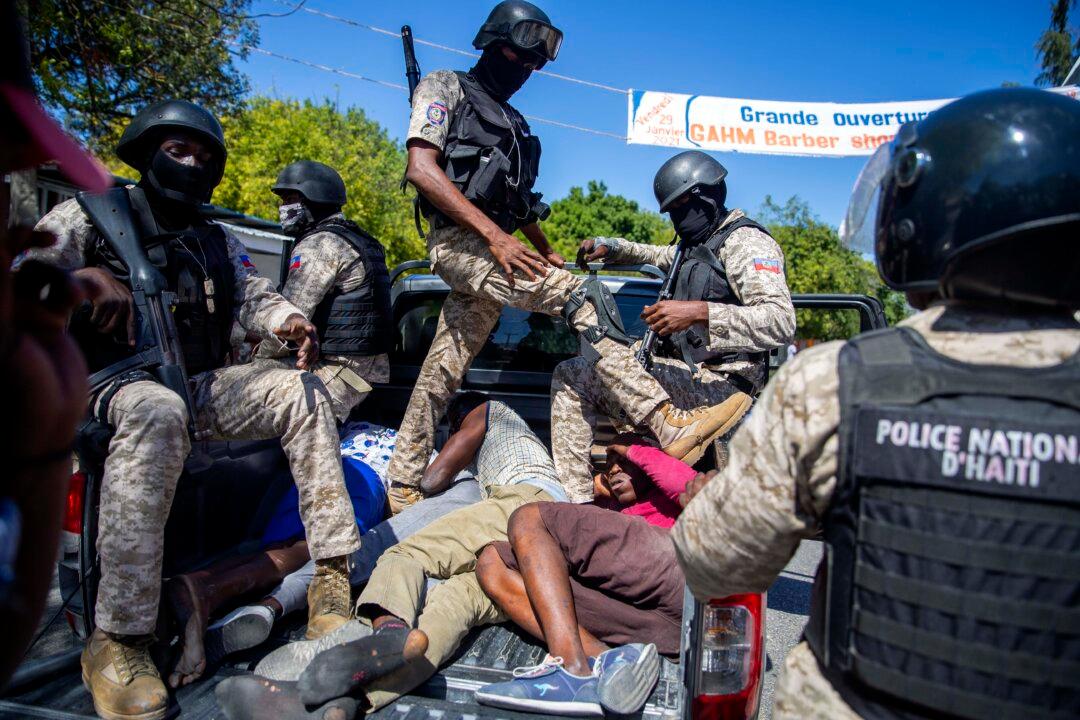PORT-AU-PRINCE, Haiti—Haitian President Jovenel Moïse announced Feb. 7 that police have arrested more than 20 people he accused of trying to kill him and overthrow his government, including a Supreme Court judge who has the support of opposition leaders demanding that Moïse step down.
Moïse spoke at Haiti’s airport in Port-au-Prince, flanked by the country’s prime minister and the police chief as he prepared to leave for the southern coastal town of Jacmel for the opening ceremony of its yearly carnival, which is being held amid the pandemic.





